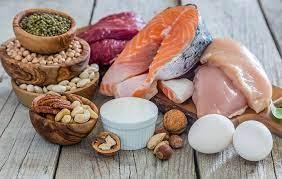Prostate cancer is a prevalent health concern, ranking as the second most commonly occurring cancer in men and the fourth most common cancer overall. In 2020 alone, there were over 1.4 million new cases of prostate cancer reported globally. This statistic underscores the significance of understanding the risks, prevention strategies, and potential impact of diet and nutrition in managing prostate cancer. Maintaining a specific diet and nutritional balance is of utmost importance during and after prostate cancer treatment. Prostate cancer can affect appetite, digestion, and nutrient absorption, making it essential to eat a variety of healthy foods to maintain strength and energy levels.
DURING PROSTATE CANCER TREATMENT:
Eat a variety of nutrient-rich foods
Including plenty of fruits, vegetables, whole grains, lean protein, and healthy fats. These foods will provide your body with the vitamins, minerals, and energy it needs to heal and fight cancer.
Maintain a healthy weight

Being overweight or obese can increase the risk of side effects from prostate cancer treatment and make it more difficult to recover. If you are overweight or obese, talk to your doctor about ways to lose weight safely.
Drink plenty of fluids
Staying hydrated is essential for overall health and well-being, especially during cancer treatment. Aim to drink at least 8 glasses of water per day.
AFTER PROSTATE CANCER TREATMENT:
Continue to eat a healthy diet
It is important to maintain a healthy diet after prostate cancer treatment to reduce the risk of recurrence and improve overall health and well-being.
Get enough protein

Protein is essential for repairing tissues and building new cells. Good sources of protein include lean meats, fish, poultry, eggs, beans, lentils, nuts, and seeds.
Choose healthy fats
Healthy fats, such as those found in olive oil, avocados, nuts, and seeds, can help reduce inflammation and support overall health.
Limit processed foods, red meat, and sugary drinks
These foods are high in unhealthy fats, sodium, and sugar, which can increase the risk of chronic diseases such as heart disease, stroke, and diabetes.
Photo Credits: Google










